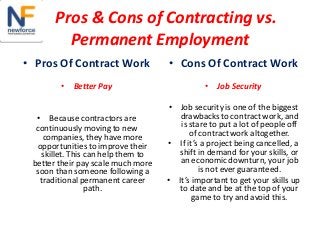
You should not base financial decisions on emotions. It is especially important for those who have made major life and financial changes. Instead, your decision should be based on your needs as well as the long-term fundamentals for what you are purchasing. You should also avoid making impulsive decisions based on financial prognosticators and headlines.
Financial advisors
A financial advisor is responsible for providing financial advice to clients. To become a financial advisor, a person must first complete training and become registered with the relevant regulatory body. You can do this through a professional qualification program, or by working in the financial sector. These professionals can help individuals choose the best investments, plans, and insurance products.

Most financial advisors work for a larger financial institution, but many are self-employed. As investing becomes easier and more affordable, there will be a greater demand for financial advisers. Baby boomers are anxious about their retirement investments. Advisors who balance growth and risk are needed.
Friends
While it is possible to get financial advice from friends in many ways, there are many risks. First, don't give advice unless you are asked. There are many ways people do things and your knowledge of finances might be different from yours. While they may be able to offer you general advice, they may not have the right experience to give you specific financial advice. You should treat the advice they give with caution. It is only a small portion of the total counsel you will receive.
Another common problem with unfriendly financial advice is the underlying motive. One parent might tell their adult child to avoid taking too high risk because they are worried about the child's safety. It's important for you to evaluate your risk profile as well as your goals before accepting any advice. You should also ask yourself why it's being given.
Internet
The Internet offers an abundance of financial information. However, there are risks associated with too much information. It is important to know what information is valuable and which is not. When surfing the Internet, it's important to be aware of the "buyer-beware" mentality. You shouldn't take any advice without consulting another person. There is so much bad advice available.

Before the Internet, retail investors would have to visit their local library in order to learn more about a company's past. In addition, they had to contact companies in order to get the latest information about their stocks. This was time-consuming and often cost money in postage. It was also necessary that the reports be printed before they could be printed.
FAQ
What tax do I have to pay on consulting income?
Yes, tax will be payable on any consultancy profits. The amount depends on how much you earn per year.
If you are self-employed, expenses can be claimed on top of your salary. These expenses include rent, childcare and food.
But you won't be able to deduct interest payments on loans, vehicle depreciation, or the cost of equipment.
If your annual income is less than PS10,000, you can only claim 25% back.
But even if you're earning more than this threshold, you might still be taxed depending on whether you're classed as a contractor or employee.
Employers are taxed via PAYE (pay as your earn), and contractors through VAT.
Do I need legal counsel?
Yes! Yes. Consultants can often create contracts with clients, without seeking legal advice. This can cause problems later on. What happens if a client terminates the agreement after the consultant's completion deadline? Or, what happens if the consultant doesn't meet the deadlines set forth in the contract?
Avoid any legal issues by speaking with a lawyer.
Who hires consultants?
Many organizations have consultants who help them with projects. These include small businesses, large corporations, government agencies, non-profits, education institutions, and universities.
While some consultants work for these companies, others are freelancers. In both cases, the process for hiring depends on how complex and large the project is.
There will be many rounds of interviews for consultants when you are looking to hire. Only then can you select the right person to fill the position.
How is consulting different from freelancing
Freelancers work as independent contractors and offer their services without the assistance of an agency or company. They usually charge an hourly rate based on how much time they spent on a project. Consultants are usually employed by companies or agencies. Consultants are typically paid either monthly or annually.
Freelancers tend to have more flexibility than consultants because they control their work hours and set their own prices. Consultants have better benefits, like health insurance, vacation time, sick leave, retirement plans and etc.
What skills will I need to be a consultant?
As a consultant, you should have both strong interpersonal skills and analytical skills. This is crucial because you might not be able to understand what you are doing when you work on complex projects. This is a must because you need to learn how quickly you can manage people.
Communication skills are essential. Most clients expect an answer within 24 hours. If they don't hear anything, it is likely that they aren't interested in you. It's important, therefore, to always keep them informed and ensure they understand what is going on.
Is it possible to be a consultant?
A consultant is someone that helps you achieve your goal. They can offer advice on how to do it better, faster and cheaper.
A consultant can help you solve problems, make decision, or negotiate with people.
Consultants are often hired for specific projects or tasks.
Consultants are usually paid hourly, daily or per project.
Statistics
- Over 50% of consultants get their first consulting client through a referral from their network. (consultingsuccess.com)
- WHY choose me: Why your ideal client should choose you (ex: 10 years of experience and 6-week program has helped over 20 clients boost their sales by an average of 33% in 6 months). (consultingsuccess.com)
- My 10 years of experience and 6-step program have helped over 20 clients boost their sales by an average of 33% in 6 months. (consultingsuccess.com)
- 67% of consultants start their consulting businesses after quitting their jobs, while 33% start while they're still at their jobs. (consultingsuccess.com)
- Over 62% of consultants were dissatisfied with their former jobs before starting their consulting business. (consultingsuccess.com)
External Links
How To
How do you find the best consultant?
First, ask yourself what kind of consultant you are looking for. Before you begin searching for a consultant to help you, you should be clear on your expectations. It is important to make a list with all the requirements you have for a consultant. This list could include technical expertise, project management skills, communication skills and availability. After you have listed your requirements, it might be a good idea to ask colleagues and friends for their recommendations. Ask them if they had any bad experiences with consultants previously and see how their recommendations compare with yours. Do some internet research if they don't have recommendations. Many websites allow people to post reviews about their work experience, including Angie's List and Indeed. Consider the ratings and comments of other candidates and use these data to start your search for potential candidates. Once you have a shortlist, be sure to contact potential candidates directly to schedule an interview. Talking through your requirements during the interview is a good idea. Ask them questions about how they can assist you in achieving those goals. It doesn’t matter who recommended them to you, just make sure they understand what you are trying to achieve and how they can help.